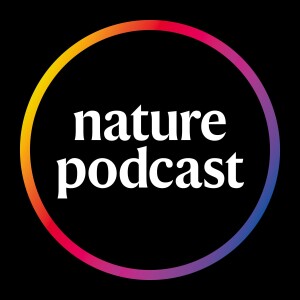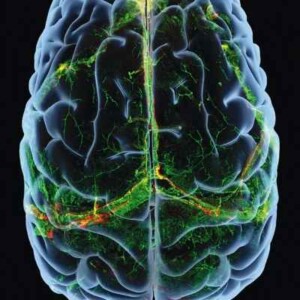Researchers have shown that the suckers of octopuses are covered with specialised receptors that allow them to taste by touching things. Similar receptors are also found in squid, but there are differences that mirror differences in the animals’ hunting behaviours; while octopuses feel for their prey, squid pull things towards themselves before deciding whether or not to eat it.
Research article: Kang et al.
Research article: Allard et al.
Nature video: How octopuses taste with their arms
08:48 Research Highlights
How climate change has been linked to a devastating avalanche in the Italian Alps, and evidence of hallucinogenic drug use in prehistoric Europe.
Research Highlight: A glacier’s catastrophic collapse is linked to global warming
Research Highlight: Hair buried in a cave shows hallucinogen use in ancient Europe
11:31 Briefing Chat
We discuss some highlights from the Nature Briefing. This time, what climate scientists can learn from medieval descriptions of lunar eclipses; how to retrieve rock samples from the surface of Mars; and the ongoing debate about whether T. rex had lips.
Nature News: Medieval accounts of eclipses shine light on massive volcanic eruptions
Nature News: Mars rocks await a ride to Earth — can NASA deliver?
Nature News: Facelift for T. rex: analysis suggests teeth were covered by thin lips
Help us win a People’s Voice award in this year’s Webbies
Vote for How the Black Death got its start in the ‘Best Individual Episode: Science & Education’ category.
Vote for Racism in Health: the harms of biased medicine in the ‘Limited-Series & Specials: Health, Science & Education’ category.
Subscribe to Nature Briefing, an unmissable daily round-up of science news, opinion and analysis free in your inbox every weekday.
Hosted on Acast. See acast.com/privacy for more information.
More Episodes
Amino acid slows nerve damage from diabetes, in mouse study
 2023-01-25
2023-01-25
Laser 'lightning rod' diverts strikes high in the Alps
 2023-01-18
2023-01-18
The science stories you missed over the past four weeks
 2023-01-11
2023-01-11
Science in 2023: what to expect this year
 2023-01-06
2023-01-06
The Nature Podcast’s highlights of 2022
 2022-12-28
2022-12-28
The Nature Podcast Festive Spectacular 2022
 2022-12-21
2022-12-21
COVID deaths: three times the official toll
 2022-12-14
2022-12-14
Oldest DNA reveals two-million-year-old ecosystem
 2022-12-07
2022-12-07
Gaia Vince on how climate change will shape where people live
 2022-12-02
2022-12-02
Mysterious fluid from ant pupae helps feed colony
 2022-11-30
2022-11-30
Audio long read: Science and the World Cup — how big data is transforming football
 2022-11-25
2022-11-25
The satellite-free alternative to GPS
 2022-11-23
2022-11-23
How a key Alzheimer's gene wreaks havoc in the brain
 2022-11-16
2022-11-16
Audio long read: She was convicted of killing her four children. Could a gene mutation set her free?
 2022-11-14
2022-11-14
Molecular cages sift 'heavy' water from near-identical H2O
 2022-11-09
2022-11-09
Audio long read: The controversial embryo tests that promise a better baby
 2022-11-04
2022-11-04
Flies can move their rigid, omnidirectional eyes – a little
 2022-11-02
2022-11-02
Racism in Health: the harms of biased medicine
 2022-10-28
2022-10-28
Ancient DNA reveals family of Neanderthals living in Siberian cave
 2022-10-26
2022-10-26
Human brain organoids implanted into rats could offer new way to model disease
 2022-10-12
2022-10-12
Create your
podcast in
minutes
- Full-featured podcast site
- Unlimited storage and bandwidth
- Comprehensive podcast stats
- Distribute to Apple Podcasts, Spotify, and more
- Make money with your podcast
It is Free
- Privacy Policy
- Cookie Policy
- Terms of Use
- Consent Preferences
- Copyright © 2015-2024 Podbean.com



 iOS
iOS Android
Android


